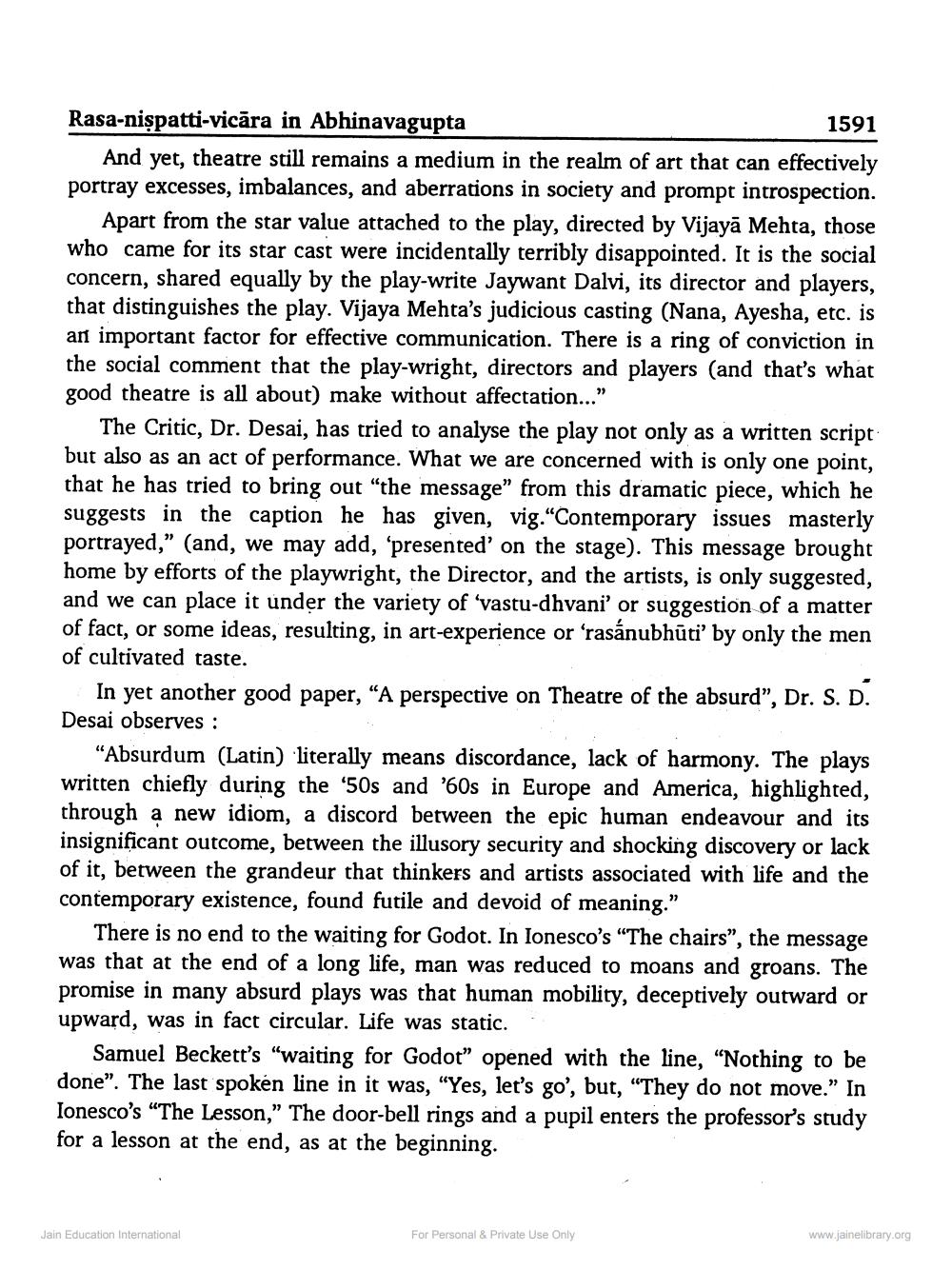________________
Rasa-nispatti-vicāra in Abhinavagupta
1591 And yet, theatre still remains a medium in the realm of art that can effectively portray excesses, imbalances, and aberrations in society and prompt introspection.
Apart from the star value attached to the play, directed by Vijayā Mehta, those who came for its star cast were incidentally terribly disappointed. It is the social concern, shared equally by the play-write Jaywant Dalvi, its director and players, that distinguishes the play. Vijaya Mehta's judicious casting (Nana, Ayesha, etc. is an important factor for effective communication. There is a ring of conviction in the social comment that the play-wright, directors and players (and that's what good theatre is all about) make without affectation..."
The Critic, Dr. Desai, has tried to analyse the play not only as a written script but also as an act of performance. What we are concerned with is only one point, that he has tried to bring out “the message” from this dramatic piece, which he suggests in the caption he has given, vig. “Contemporary issues masterly portrayed,” (and, we may add, 'presented' on the stage). This message brought home by efforts of the playwright, the Director, and the artists, is only suggested, and we can place it under the variety of 'vastu-dhvani' or suggestion of a matter of fact, or some ideas, resulting, in art-experience or ‘rasānubhūti' by only the men of cultivated taste.
In yet another good paper, “A perspective on Theatre of the absurd”, Dr. S. D. Desai observes :
"Absurdum (Latin) literally means discordance, lack of harmony. The plays written chiefly during the '50s and '60s in Europe and America, highlighted, through a new idiom, a discord between the epic human endeavour and its insignificant outcome, between the illusory security and shocking discovery or lack of it, between the grandeur that thinkers and artists associated with life and the contemporary existence, found futile and devoid of meaning."
There is no end to the waiting for Godot. In Ionesco's "The chairs”, the message was that at the end of a long life, man was reduced to moans and groans. The promise in many absurd plays was that human mobility, deceptively outward or upward, was in fact circular. Life was static.
Samuel Beckett's “waiting for Godot” opened with the line, “Nothing to be done”. The last spoken line in it was, “Yes, let's go', but, “They do not move." In Ionesco's “The Lesson," The door-bell rings and a pupil enters the professor's study for a lesson at the end, as at the beginning.
Jain Education International
For Personal & Private Use Only
www.jainelibrary.org




